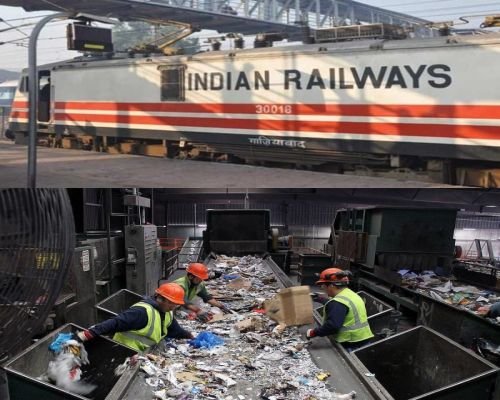The process of setting up Indian Railways’ long-awaited and ambitious “waste-to-energy plant” in Jaipur and then at the New Delhi station began two years back and the successful bidder has brought in the required machinery and technology, the procurement process is yet to be GST-compliant, causing the delay.
While the Jaipur plant would manage five tonnes of solid waste per day, the New Delhi plant would have a capacity of 10 tonnes per day. The process involves segregation, recycling and conversion of waste to energy.
The Railways has provided the land to set up the plants and the project is being executed by the RITES, a public sector unit under the Railways, through its corporate social responsibility (CSR) fund.
The project involves segregation of bio-degradable and non-degradable waste. According to an estimate, one tonne of bio-degradable waste produces 100 units of electricity. Energy generated from these plants would be utilized for suitable services at/near railway stations.
Acknowledging the delay in commissioning of the project, “Since this is the first such project being executed by Railways; there are several issues to be sorted out as a learning experience. Unless procurement is fully GST-compliant, Railways cannot make payment.” We hope this issue will be sorted out amiably.
Besides Jaipur and New Delhi, Railways will be setting up such plants for disposal of municipal solid waste generated at railway stations at four more stations — Patna, Secunderbad, Chennai and Varanasi — in an environment friendly manner, including conversion of waste to energy.
